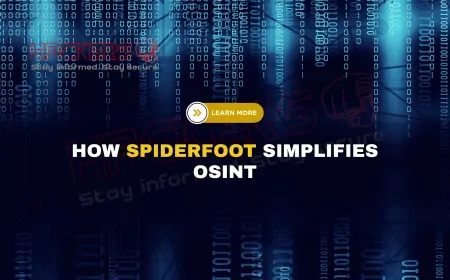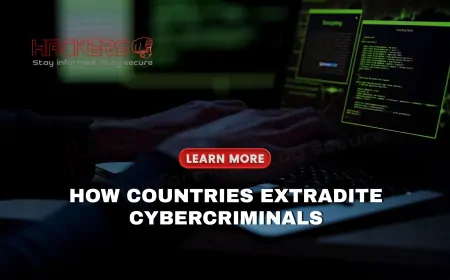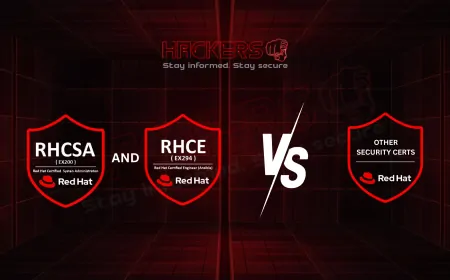How the Delft University of Technology’s Cybersecurity Research Programme Is Affecting Cloud Security Best Practices
Cloud computing has changed how businesses and organizations store and share data. It offers flexibility and scalability, but it also brings new security challenges. Hackers target cloud systems for their vast amounts of valuable information. Delft University of Technology, or TU Delft, plays a key role in tackling these issues through its cybersecurity research programme. Researchers at TU Delft combine computer science with policy and economics to study real-world threats and develop better defenses. Their work influences how companies manage cloud security, from encryption techniques to governance strategies. This blog explores how TU Delft's efforts shape best practices in cloud security. We will cover their research, education, and collaborations in simple terms, so beginners can follow along.

Table of Contents
- Overview of TU Delft's Cybersecurity Programme
- Cloud Security Challenges
- Key Research Areas Impacting Cloud Practices
- Education and Training Contributions
- Collaborations and Real-World Influence
- Summary of Key Contributions
- Conclusion
- Frequently Asked Questions
Overview of TU Delft's Cybersecurity Programme
TU Delft's cybersecurity programme brings together experts from various fields. It operates through the Faculty of Electrical Engineering, Mathematics and Computer Science, and the Faculty of Technology, Policy and Management. Researchers focus on technical aspects like cryptography and network security, while also examining economic and policy factors. The programme addresses how to protect systems while maintaining privacy, especially in data-heavy environments like the cloud.
The community includes over 20 team members studying causal forces behind security problems. They use methods like large-scale measurements and randomized trials to test interventions. This socio-technical approach is crucial for cloud security, where data is stored remotely and shared across networks. TU Delft's work helps define best practices by blending theory with practical outcomes.
Programs like the 4TU Cyber Security master specialisation train students in secure systems. Although some joint efforts with other universities ended in 2024, TU Delft continues its independent initiatives.
Cloud Security Challenges
Cloud security involves protecting data in remote servers accessed over the internet. Common issues include unauthorized access, data breaches, and misconfigurations. Providers must ensure encryption, access controls, and compliance with laws like GDPR.
- Data privacy: Ensuring personal information stays safe during storage and sharing.
- Access management: Controlling who can view or edit cloud resources.
- Compliance: Meeting regulations for data protection in international clouds.
- Threat detection: Spotting attacks in distributed environments.
TU Delft researchers highlight risks like domain-validated certificates in cloud deployments, which can allow takeovers if not managed properly.
Key Research Areas Impacting Cloud Practices
TU Delft's research directly affects cloud security through innovations in access control and privacy-enhancing technologies. For example, they develop dual access control systems for cloud storage, using attribute-based encryption to secure data sharing without compromising efficiency.
- Attribute-based access control: Optimizes policies for secure file sharing in clouds.
- Privacy technologies: Research on sharing sensitive data without leaks, vital for cloud analytics.
- Governance models: Studies on incentives for providers to improve security postures.
- Empirical analysis: Measuring vulnerabilities in cloud-hosted services.
Projects like EGOS evaluate regulations' impact on cloud platforms, leading to better measures for online safety.
Research also covers blockchain for secure cloud transactions, enhancing trust in distributed systems.
Education and Training Contributions
TU Delft shapes cloud security through specialized courses. The Secure Cloud Computing course covers concepts and best practices for protecting cloud infrastructures.
- Master programmes: Cybersecurity specialisation teaches network security and cryptography for clouds.
- Electives: Courses on actors, incentives, and user-centered security.
- Executive training: Prepares professionals for cloud governance.
- Blockchain certificate: Applies to secure cloud data management.
These programs train experts who implement best practices in industry, spreading TU Delft's insights.
Collaborations and Real-World Influence
TU Delft partners with government and industry to apply research. Collaborations with AIVD study national cyber threats, including cloud-related risks.
- NWO funding: Projects like EGOS improve cloud provider security.
- Industry ties: Work with banks and providers on malware defenses in clouds.
- Policy input: Advises on regulations affecting cloud practices.
- Open source: Shares tools for vulnerability assessment.
Initiatives like trials with NextCloud promote secure alternatives to commercial clouds.
Summary of Key Contributions
Here is a table summarizing TU Delft's contributions to cloud security best practices.
| Contribution | Description | Impact on Best Practices |
|---|---|---|
| Dual Access Control | Systems for secure cloud storage and sharing. |
Enhances data management and permissions. |
| Privacy Enhancing Tech | Solutions for sensitive data in clouds. |
Supports compliance and privacy. |
| Governance Research | Studies on incentives and regulations. |
Improves provider accountability. |
| Secure Cloud Courses | Training on defenses and threats. |
Builds skilled professionals. |
Conclusion
TU Delft's cybersecurity programme significantly impacts cloud security best practices through innovative research, education, and collaborations. By advancing access controls, privacy tech, and governance, they help organizations protect data effectively. Their socio-technical approach ensures practical, policy-aligned solutions. As cloud usage grows, TU Delft's contributions foster a safer digital landscape.
Frequently Asked Questions
What is TU Delft's cybersecurity programme?
It is a community of researchers addressing security challenges through technical and socio-technical methods.
How does TU Delft research cloud security?
Through access control systems and privacy technologies for data sharing.
What is attribute-based access control?
A method to enforce policies based on user attributes in clouds.
Does TU Delft offer cloud security courses?
Yes, like Secure Cloud Computing in their master programmes.
What collaborations does TU Delft have?
With AIVD, NWO, and EU projects on governance.
How does research affect best practices?
By providing empirical evidence for incentives and interventions.
What is the EGOS project?
It studies governance for online safety, including cloud platforms.
Is blockchain used in TU Delft cloud research?
Yes, for secure consensus in distributed systems.
What privacy concerns in clouds?
Dependency on foreign providers and data leaks.
How does TU Delft publish findings?
In top conferences like NDSS and USENIX Security.
What is socio-technical security?
Combining tech with policy and economics for real-world solutions.
Does TU Delft trial cloud alternatives?
Yes, like NextCloud for better control.
What funding supports the programme?
NWO and EU grants for resilience projects.
How does education influence practices?
Trains professionals in secure design and compliance.
What are domain-validated certificates risks?
Can enable site takeovers in cloud setups.
Is there a focus on AI in cloud security?
Yes, for threat detection and privacy.
What is the Cyber Security Academy?
An executive program for IT professionals.
How does TU Delft measure security?
Using internet-wide scans and metrics.
What policy impact from research?
Informs EU acts and national strategies.
Future of TU Delft cloud research?
Focus on digital resilience and open-source tools.
What's Your Reaction?










































































